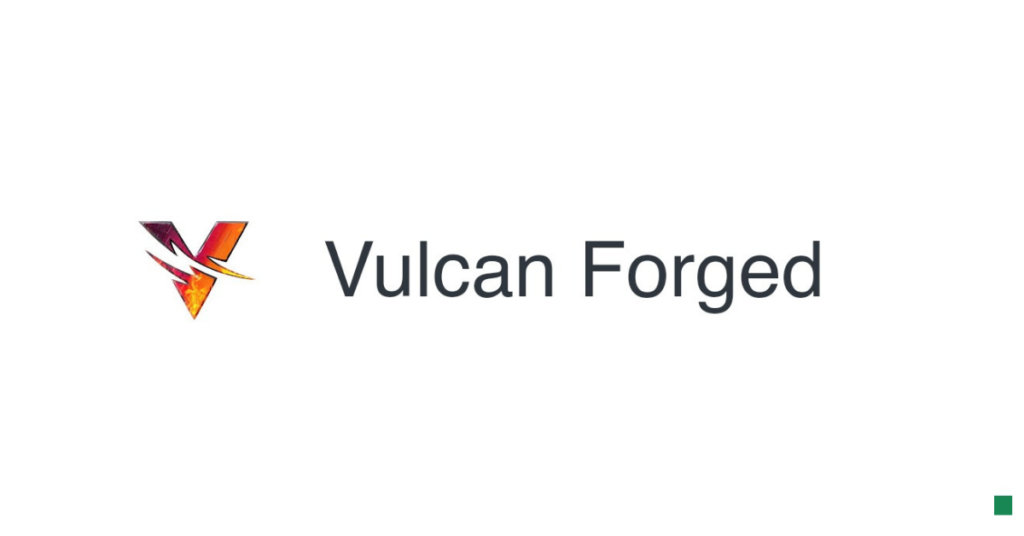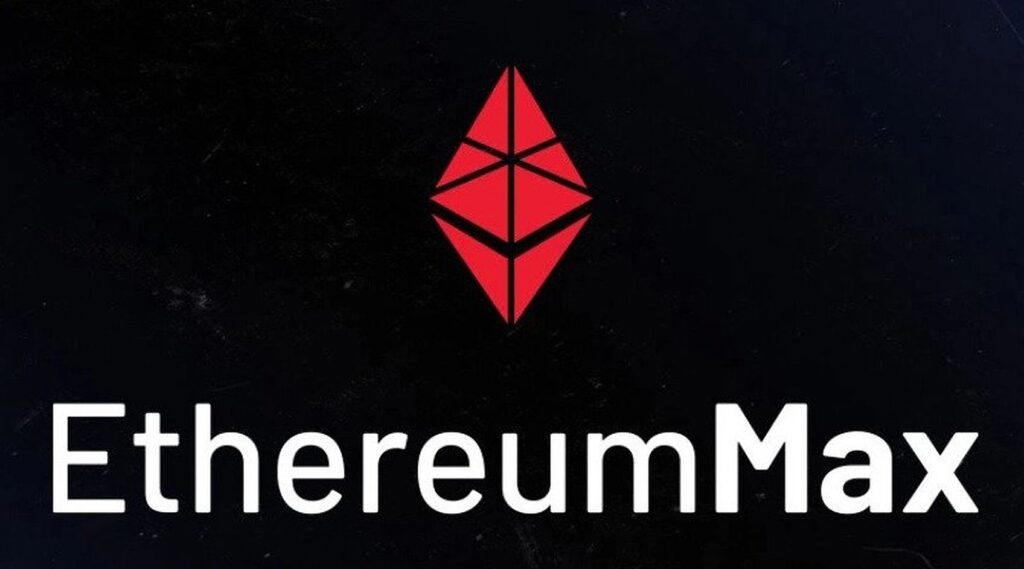Ethereum (ETH) has recently reached a seven-month high, fueled by the anticipation surrounding its upcoming Shanghai and Capella upgrades. The second-largest cryptocurrency by market cap soared in value as investors and users eagerly awaited the new improvements.
The Shanghai upgrade, expected to go live later this year, will improve Ethereum’s scalability and efficiency by implementing a series of Ethereum Improvement Proposals (EIPs). These proposals will address various issues and limitations within the Ethereum network, making it more user-friendly and able to handle a higher volume of transactions.
Meanwhile, the Capella upgrade, slated for 2024, is designed to further enhance the network’s usability and performance. This update will focus on refining the Ethereum 2.0 architecture, which has already shown great promise in addressing the network’s energy consumption and latency problems.
Both upgrades are expected to make Ethereum more appealing to developers, users, and investors alike, contributing to the recent surge in its value. As the upgrades are rolled out and Ethereum continues to evolve, its potential to compete with and eventually surpass Bitcoin as the leading cryptocurrency is becoming increasingly plausible.
As Ethereum reaches new heights, its community remains optimistic about the platform’s future, confident that the upcoming upgrades will further solidify its position as a leading force in the world of decentralized finance and beyond.
Binance, the world’s largest crypto exchange, has shrugged off concerns about its liquidity amid a surge in investor redemptions.
On Saturday, the cryptocurrency giant told Crypto Intelligence News that its management is “not worried” about the growing withdrawals, as many investors seek self-storage or move their holdings to rival crypto platforms.
They added that Binance meets strict liquidity requirements and is 1:1 backed, with all investor assets being held in segregated accounts and wallets.
This comes hot on the heels of FTX, another rival crypto exchange, going bankrupt after experiencing a surge in withdrawals.
Binance initially considered taking over FTX, before deciding against the takeover due to concerns about the firm having mishandled customers’ funds.
The company’s native token, BNB, is currently down by around 15 percent in the last week, after falling a further six percent in the most recent 24 hours of trading.
Earlier this week, on Thursday, Binance CEO Changpeng Zhao said “We are financially OK” when asked if the exchange could handle a $2.1bn repayment – an amount they could have to pay back to FTX.
Zhao’s comments have done little to settle investors, with billions continuing to flow out of Binance and the exchange’s native token continuing to get hammered.
The U.S. Treasury Department said on Tuesday that cryptocurrency exchange Bittrex Inc had agreed to pay $29 mln in fines for “apparent violations” of sanctions on certain countries and anti-money laundering law.
The Treasury Department’s Office of Foreign Assets Control (OFAC) and Financial Crimes Enforcement Network (FinCEN) had levied fines of about $24 million and $29 million, respectively, on Bittrex.
But according to terms of the settlement, FinCEN would transfer $24 million to OFAC after it receives its $29-million payment from Bittrex, as some of the violations stem from the “same underlying conduct” as the OFAC investigation.
Effectively, Bittrex will have to pay a penalty of about $29 million.
Bittrex failed to prevent people located in the sanctioned jurisdictions of Ukraine’s Crimea region, Cuba, Iran, Sudan and Syria from using its platform between March 2014 and December 2017, according to OFAC.
FinCEN said its investigation found that from February 2014 through December 2018, Bittrex did not maintain an effective anti-money laundering program.
“Bittrex’s AML program failed to appropriately address the risks associated with the products and services it offered, including anonymity-enhanced cryptocurrencies,” it added.
Cryptocurrencies and other digital assets have soared in popularity over recent years and are getting increasingly intertwined with the regulated financial system, saddling policymakers with monitoring risks in a largely unregulated sector.
Bittrex in an emailed statement to Reuters said it was “pleased to have fully resolved” the matter with OFAC and FinCEN on mutually agreeable terms.
Cryptocurrency platform Crypto.com will set up its European regional headquarters in Paris, the Singapore-based company said on Wednesday.
The firm will invest 150 million euros ($145.7 million) in France to support the establishment of its market operations, it said in a statement, adding it will hire local talent in the fields of compliance, business development and product.
The cryptocurrency exchange platform, which has more than 50 million users worldwide, received regulatory approval by the French market authority last month, allowing it to offer products and services to customers in France.
Crypto.com also got regulatory approval in the United Kingdom and Italy earlier this year.
In May, cryptocurrency exchange Binance said it had registered with France’s market regulator, with Binance France’s general manager David Prinçay adding it was now seeking a formal licence to open a regional headquarters in France.
Kevin Kelly has been famous for his sense of the direction of all things technological since the 1980s. His books on the subject published over a span of decades are consistent best sellers. When something new comes over the technological horizon, such as artificial intelligence (AI) and blockchain, the world is eager for his opinions, and HistoryDAO has the privilege of having his opinions directly for the second time this year.
In the first interview, HistoryDAO spoke with Kelly on the subject of “what technology wants,” and a good deal of the conversation covered specifically “what blockchain technology wants,” and the role of nonfungible tokens (NFTs).
“The fact that you know London is the capital of England is just a consensus,” said Kelly in the earlier interview. “The very thing itself is a consensus. Not just the representation of it.” This part of Kelly’s discussion brought to light the role of consensus in truth, implying that the Platonic ideal for truth may have been consensus all along. NFTs and blockchain, of course, are founded on the codification of consensus.
Taking these insights from Kelly to heart, the HistoryDAO team came to realize how important consensus has always been considered all the way back to the founding of Western philosophy by Plato, who believed that while objective truth existed, it could only be revealed through “dialectic,” which bears significant analogy to the modern concept of consensus.
In the coming weeks, HistoryDAO, represented by founder and CEO Sky Harris, and Kelly will add a favorite and increasingly critical topic to the dialectic: AI. Does AI have a role to play, or will it soon have a role to play, as a participant in dialectic itself? Do blockchain and NFTs have a unique touchpoint with truth? The conversation will pursue such questions with reference to lessons from history and technology’s role in the future. Kelly’s perspective on AI will be explored as well in the context of another passion of his art as a universal and uniquely human endeavor.
Look for the conversation on HistoryDAO’s YouTube channel in the coming weeks!
About HistoryDAO
HistoryDAO is where the world records history in Web3. The Web3 community comes together on the HistoryDAO platform to mint historic and current events immutably on the blockchain to be preserved — unchanged and indelible — as HistoryNFTs. The decentralization and democratization of history with blockchain and NFT technology are governed by you, the decentralized autonomous organization (DAO), the people. Write, record, analyze, adjudicate and mint our world as it unfolds across the globe every day with HistoryDAO and HistoryNFTs.
- Twitter: https://twitter.com/History_DAO
- Discord: https://discord.com/invite/MFCxaEp2Zn
- YouTube: https://www.youtube.com/c/HistoryDAO
- Website: https://historydao.io
About Kevin Kelly
Kevin Kelly is renowned for his seminal role in the history of the internet. It can be said that he “was there from the beginning.” Kelly co-sponsored the first Hackers Conference in 1984 under the auspices of the publisher of the Whole Earth Catalog, which also supported the oldest digitally based community bulletin board, The Well, founded in 1985, and still operating today. In the early 90s, he became the founding editor and “Senior Maverick” of Wired Magazine. In his career as a chronicler observing the relationship between human beings and technology, he became famous for making dependable predictions about what that relationship would produce in the future.
Kelly has published several best-selling philosophical books on technology over the past decades, and his most recent work is a labor of love from the time he first arrived in an Asian country with a camera in hand. It’s called “Vanishing Asia,” an anthology of more than 9,000 photographs he took while traveling through Asia since the 1970s.
European Union rules to regulate crypto assets will curb the market share of non-euro denominated stablecoins from 2024, potentially limiting EU competitiveness, industry representatives have said.
Ambassadors for the 27 EU states on Wednesday gave their approval to a deal on the new Markets in Crypto Assets Regulation (MiCA) thrashed out in June with the European Parliament.
To become law, the Parliament must vote on the rules, something which is expected to happen in December or early 2023.
The ambassadors also published a full text of the deal, revealing details such as that stablecoins not denominated in the euro will be limited to 1 million transactions and 200 million euros ($196 million) in transaction value when marketed in the euro zone.
A joint letter by crypto industry groups Blockchain for Europe and the Digital Euro Association said that the world’s three largest stablecoins – Tether, USD Coin and Binance USD – account for 75% of crypto trade volumes and already exceed the transaction-count and volume limits set out in the EU rules.
Anto Paroian, CEO of cryptocurrency hedge fund ARK36, said the curb “will likely limit the EU’s competitiveness and innovation potential”.
The European Crypto Initiative, a Brussels-based crypto lobbying group, said in a statement the outcome could be “burdensome”.
But it said a more favourable approach to euro-denominated stablecoins was likely to emerge after “initial fears for the EU’s financial stability and monetary sovereignty”.
Stablecoins are a type of cryptocurrency designed to maintain a constant value, usually via a 1:1 peg with a fiat currency.
“If the directive’s current wording does not change, it will significantly restrict the use of dollar-denominated stablecoins such as USD Coin, Tether, and Binance US,” Fabian Astic, Global Head of DeFi and Digital Assets at Moody’s Investors Service, said.
Stefan Berger, a member of the European Parliament who helped to negotiate the final deal, told Reuters: “Indeed, this might increase the euro-pegged stablecoins, which is a welcome development.”
Tether’s dollar-pegged coin is the world’s third largest cryptocurrency, with a market cap of $68 billion, compared to$202 million for the euro-pegged version, CoinGecko data shows.
Celsius Network’s co-founder and chief strategy officer Daniel Leon has stepped down, the bankrupt crypto lender said on Tuesday, joining a wave of executive departures from beleaguered digital asset companies.
The announcement comes a week after chief executive officer Alex Mashinsky’s resignation. Leon’s departure was first reported by CNBC.
Hoboken, New Jersey-based Celsius filed for Chapter 11 bankruptcy in July, a month after freezing withdrawals citing extreme market conditions.
Lenders such as Celsius boomed in lockstep with the surge in popularity of major cryptocurrencies like Bitcoin, as they offered interest rates much higher than traditional banks and easy access to loans.
However, the collapse of digital tokens terraUSD and luna, coupled with a tough macroeconomic environment, tested their business model and eroded customers’ optimism.
Voyager Digital Ltd, another major U.S. crypto lender, also filed for bankruptcy in July.
Follow Crypto Intelligence on Google News to never miss a story
The blockchain and nonfungible token (NFT)-focused video game studio Vulcan Forged has secured $8 million in Series A funding led by SkyBridge Capital. The venture capital fund has the option to invest an additional $33 million.
The funding is aimed at accelerating the growth of Vulcan Forged “Metascapes,” a play-to-earn immersive metaverse game that allows users to build their land in the metaverse and store that data in nonfungible tokens. In addition, the funding will be used to grow Vulcan’s operations in North America and other markets. Currently, Vulcan Forged has about 15 games and decentralized applications (DApps), with about 200,000 users.
The gaming studio pushed out several Web3 games in the recent past, some of them being Berserk, Forge Arena and VulcanVerse. However, they’re currently heavily concentrated on MetaScapes, which allows users to design and build their own metaverse spaces and store the data in NFTs.
Jamie Thomson, founder and CEO of Vulcan Forged, says their product saw rapid organic growth over the last two years, and their headcount grew to over 130 people from just two workers. During this time, MetaScapes acquired over 200,000 users across 15 games. Thomson said:
“As we look to expand into new markets like North America and open our office in New York City, we believe that now is the perfect time to capitalize on our momentum with a strategic investment from Anthony Scaramucci and his team at SkyBridge Capital.”
Anthony Scaramucci, founder and managing partner at SkyBridge Capital, also commented:
“Jamie is a brilliant entrepreneur and has impressed me as he bootstrapped Vulcan Forged from a small startup to a top 10 metaverse project in the last two years, with a strong commitment to their growing community.”
“Vulcan Forged and their MetaScapes engine are well-positioned to completely disrupt the legacy gaming and entertainment industries and we are excited to help take them to the next level.”
The studio’s main goal with this product is to compete with Mojang’s Minecraft in the long run.
To learn more about this project, please visit its website.
Kim Kardashian has promoted everything from appetite-suppressing lollipops to melon-flavored liqueur to toilet paper, but it was her foray into the murky world of cryptocurrencies that got her into hot water.
The reality television star and influencer has agreed to settle charges of unlawfully touting a crypto security and to pay $1.26 million in penalties and fees, the U.S. Securities and Exchange Commission said on Monday.
Kardashian, who has 330 million followers on Instagram and 73.7 million followers on Twitter, failed to disclose that she was paid $250,000 by crypto company EthereumMax to publish an Instagram post about its EMAX tokens, the SEC said.
The SEC in November 2017 warned celebrities looking to cash in on the emerging digital asset space that U.S. rules require they disclose when they are being paid to endorse crypto tokens.
Since then it has pursued a handful of other celebrities, including action film star Steven Seagal, music producer “DJ Khaled” and boxer Floyd Mayweather Jr. for breaking that rule, but Kardashian is arguably the most high profile. read more
Her post contained a link to the EthereumMax website, which provided instructions for potential investors to purchase EMAX tokens. “Sharing what my friends just told me about the EthereumMax token!” the post read.
Under U.S. law, people who tout a certain stock or crypto security need to disclose not only that they are getting paid to do so, but also the amount, the source and the nature of those payments, SEC Chair Gary Gensler said on Monday.
“This was really to protect the investing public – when somebody is touting that stock and whether that’s a celebrity or an influencer or the like, and that’s at the core of what this is about,” Gensler said in an interview with CNBC.
“I want to acknowledge Miss Kardashian cooperating and ongoing cooperation. We really appreciate that,” Gensler added.
Kardashian has agreed to pay the charge without admitting or denying the SEC’s findings. Her lawyer Michael Rhodes said Kardashian was pleased to have resolved the case.
“She wanted to get this matter behind her to avoid a protracted dispute. The agreement she reached with the SEC allows her to do that so that she can move forward with her many different business pursuits,” Rhodes said in a statement.
Follow Crypto Intelligence on Google News to never miss a story
At Token2049 today, with over 7,000 industry professionals, institutional investors and regulators attending, KyberSwap CEO Victor Tran predicted onstage that decentralized finance (DeFi) will overtake TradFi in 10 years. On top of that, KyberSwap will also be the most used decentralized exchange (DEX) because of its innate ability to provide the best rates in all of DeFi.
Speaking on the panel “Decentralized Exchanges: The Road Ahead” along with co-founders from 1inch Network and Mantra, Tran declared that consumers in the future will value privacy and control, especially considering developments around the world today.
“Today, users are still exposing their data as people can see what your wallets hold and what transactions you make at what prices. Users still participate in DeFi, as it is a good option to earn while having custody of your own assets. The next step, naturally, will be privacy in order to protect their privacy. Together with that, major use cases like insurance will be increasing in a major way in order to provide more protection to users,” said Tran.
With privacy building through the bear market, improving security measures for users is a priority for the industry. “It is important to provide stability to users, as they are still dealing with the massive volatility and blowout in the markets with the downturn as well as several security issues like hacks in the market with lots of losses. In the short term, KyberSwap is focusing on providing stable DeFi earning potential all throughout the bear market at least for the next one and a half years with major liquidity mining campaigns with our chain partners and project partners like Polygon Chain, Avalanche Network, Lido Finance and QiDao,” Tran elaborated.
As DeFi expands, use cases build and leaders in decentralization who continually increase their ecosystem integration and UI/UX, such as KyberSwap, will go on to build the DeFi space to the extent where using a decentralized exchange and services will be as easy as using a digital banking app, or possibly even easier. This increased ease of use will attract a new generation of users and the unbanked, leading to more people choosing to onboard with crypto, especially the large and increasingly tech-savvy demographics of the world, such as Asia, Latin America, Africa and so on. Considering these key factors, Tran believes DeFi will “flip” traditional finance (TradFi) as a dominant force in the financial world in 10 years.
Tran said that institutions will increasingly participate in DeFi as well: “Institutions value security, infrastructure and privacy protection in order to support their needs, which are completely different from the retail users. We will unlock many infrastructure layers, application layers and privacy-focused features soon in DeFi, which will also bring in large amounts of institutional funds.”
As a DEX aggregator, KyberSwap currently provides users the best swap rates on 12 chains along with the mission to make DeFi easy, accessible, safe and rewarding for all users around the world. “Ultimately, at the end of the day, it is about making users’ lives easier. KyberSwap’s focus is 100% about maximizing users’ benefits and safety. What we see with decentralized finance is just starting, and it will grow exponentially. KyberSwap sees a tipping point in the next decade, and we are working endlessly to be an essential pillar of that future,” said Tran, closing his remarks.
About Kyber Network
Kyber Network is building a world where any token is usable anywhere. KyberSwap.com, our flagship DEX aggregator and liquidity platform, provides the best rates for traders in DeFi and maximizes returns for liquidity providers.
KyberSwap powers 100+ integrated projects and has facilitated over $10 billion worth of transactions for thousands of users since its inception. It’s currently deployed across 12 chains — Ethereum, BNB Chain, Polygon, Avalanche, Fantom, Cronos, Arbitrum, Velas, Aurora, Oasis, BitTorrent and Optimism.
Follow Crypto Intelligence on Google News to never miss a story













